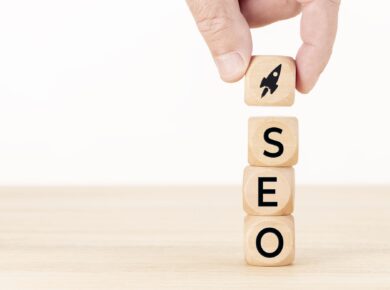In recent years, the business landscape has witnessed a remarkable transformation as startups increasingly challenge established industries. These agile and innovative companies are not just introducing new products or services; they are redefining entire sectors by leveraging technology, embracing new business models, and responding to shifting consumer preferences. This article delves into the ways startups disrupt traditional industries, the impact of their innovations, and what established companies can learn from these emerging players.
1. The Power of Innovation
1.1 A Culture of Creativity
Startups thrive on innovation, driven by a culture that encourages creativity and risk-taking. Unlike established companies, which may be constrained by bureaucracy and traditional practices, startups often operate with a lean mindset, allowing them to pivot quickly in response to market demands. This agility enables them to explore unconventional ideas and develop unique solutions that resonate with consumers. For example, companies like Airbnb and Uber disrupted the hospitality and transportation sectors, respectively, by creating platforms that connect service providers directly with customers, sidestepping the limitations of traditional business models.
1.2 Leveraging Technology
Technology plays a pivotal role in the success of many startups. From advanced data analytics to artificial intelligence, startups harness cutting-edge tools to enhance their operations, improve customer experiences, and drive efficiency. For instance, fintech startups like Stripe and Square have revolutionized payment processing, making it easier for businesses of all sizes to accept payments seamlessly. By embracing technology, startups can level the playing field against larger competitors and offer services that meet the evolving needs of consumers.
2. Challenging Established Norms
2.1 Consumer-Centric Approaches
One of the most significant ways startups disrupt traditional industries is by prioritizing the consumer experience. Established companies often rely on established norms and practices, which can lead to stagnation and a lack of responsiveness to changing consumer preferences. In contrast, startups are agile and customer-focused, often employing methods such as design thinking to create products and services that align with user needs. Companies like Warby Parker and Dollar Shave Club have successfully challenged the eyewear and grooming industries by offering affordable, high-quality products and convenient purchasing experiences, demonstrating that listening to consumers can lead to significant disruption.
2.2 Disruptive Business Models
Startups frequently introduce disruptive business models that challenge the status quo. These models can take many forms, including subscription services, direct-to-consumer sales, and on-demand delivery. For example, Netflix shifted the way people consume media by introducing a subscription-based streaming service, effectively challenging the traditional cable television model. By offering flexibility and convenience, Netflix changed consumer expectations and forced established media companies to adapt or risk losing market share. This shift illustrates how innovative business models can disrupt entire industries and reshape consumer behavior.
3. The Impact of Startups on Established Industries
3.1 Increased Competition
The rise of startups has heightened competition across various sectors, pushing established companies to rethink their strategies and operations. With new entrants vying for market share, traditional businesses are compelled to innovate and improve their offerings to retain customers. This competitive pressure can lead to enhanced products and services, ultimately benefiting consumers. As startups continue to disrupt, established companies must adapt to survive, fostering an environment of continuous improvement and innovation.
3.2 Collaborative Opportunities
While startups often disrupt established industries, they also create opportunities for collaboration. Many traditional companies recognize the value of partnering with startups to leverage their innovative approaches and technologies. This trend has led to the emergence of corporate accelerator programs, where established firms invest in and mentor startups. By fostering these relationships, established companies can tap into fresh ideas while helping startups scale their solutions. This collaborative ecosystem can drive innovation and create new value for both parties.
4. Lessons for Established Companies
4.1 Embrace Change
To thrive in a rapidly evolving business landscape, established companies must be willing to embrace change and adapt to new realities. This includes fostering a culture of innovation, encouraging experimentation, and being open to new ideas. By adopting a growth mindset, traditional businesses can position themselves to respond effectively to the challenges posed by startups.
4.2 Focus on Customer Needs
Listening to customers is crucial for any business, but it is particularly vital in an environment where startups are challenging the status quo. Established companies should invest in understanding consumer preferences, pain points, and trends to ensure they remain relevant. By adopting a customer-centric approach, traditional businesses can create products and services that resonate with their target audience and compete more effectively against disruptive newcomers.
Conclusion
Startups are undeniably reshaping established industries, driving innovation, and challenging traditional business models. Their agile approaches, focus on consumer needs, and ability to leverage technology allow them to disrupt even the most entrenched sectors. As startups continue to thrive, established companies must recognize the value of adaptation, collaboration, and customer-centricity to remain competitive. Ultimately, this dynamic landscape presents an exciting opportunity for both startups and established firms to learn from one another and drive positive change within their industries. By embracing disruption and fostering innovation, businesses of all sizes can contribute to a more vibrant and evolving marketplace.








